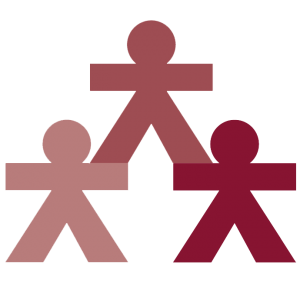“Nihil de nobis, sine nobis!” or, “nothing about us without us!” is a rallying cry among many disabled communities and their activists. Do not make decisions about us, they say, without our input.
This past Tuesday, the Landis Center kicked off the college’s first annual Disabilities Awareness Week with a panel discussion on ableism and accessibility. The goal of the discussion was to engage in conversation about the manifestations of ableism in communities and discuss ways to be an ally to the disabled population, according to the event’s description.
The discussion was moderated by the week’s organizers, Beth Anne Castellano ’22, Allie Bindler ’21 and Alison Maxwell ’22 and included four panelists who work daily with disabled communities.
The panelists were Kelly Donovan, a peer specialist at Advocates in Action Rhode Island, Marissa O’Brien, deputy director of programs for Best Buddies International in Delaware, Jessica McKenty, director of advocacy at The Arc of Lehigh and Northampton Counties and Jackie Fiore, a pediatric physical therapist for Northampton County Early Intervention.
Donovan described her everyday life at Advocates in Action as striving to “educate people about their options to live an empowered life; a life of their choosing.”
“We encourage individuals to make informed choices so that they are able to be in control of their own lives,” Donovan added, a sentiment that the other panelists reiterated in their remarks.
Ableism, according to McKenty, is “the discrimination and social prejudice against people with disabilities based on the belief that typical abilities are superior”.
McKenty explained that many of our daily operations and societal systems were created in ableist ways that individuals without disabilities may not recognize. For example, grocery stores with high shelves force people in wheelchairs to constantly ask for help to access foods and goods, she said.
McKenty, noting the format of the discussion, said that even Zoom had ableism in its roots. An American Sign Language interpreter was on the panel, whom McKenty acknowledged as a great asset to any Zoom call since someone with a disability might not be at the literacy level to read closed captions.
Castellano asked the panelists about common misconceptions surrounding disabled individuals.
Fiore said that in many cases, those in disabled communities are not even seen as human beings, and people may “never once really look at them.”
One of the biggest agreed-upon misconceptions, according to the group, was the idea that someone who appears significantly impaired is unhappy or incapable of leading a successful or fulfilling life.
“So when you’re meeting someone with a disability, take away that label, take away what you think you know about them and presume that they will hit this [high] level, don’t cap them” McKenty said.
Fiore added a few additional misconceptions such as “all people with Down Syndrome are happy, or all people with autism don’t like physical touch, or all people who use a wheelchair can’t walk or all people who are deaf can read lips.”
O’Brien emphasized the misrepresentation and undermining of disabled individuals.
“There’s so many different things that we undervalue and we don’t realize, and we can’t tokenize and marginalize all of these individuals just because of their diagnosis of the disability, we need to show that they really can do all these things on their own,” O’Brien said.
Another topic of discussion surrounded disabled individuals’ vulnerability to COVID-19 both physically and emotionally, in terms of the mental effects of isolation.
“A lot of parents are also either working from home or traveling back and forth from their office, so helping their student get set up for school each day has been a struggle for many of our families…It can be difficult [for children with disabilities] to have to sit on a Zoom and, you know, ensure that they’re able to attend class and pay attention” O’Brien explained. “To know that we can advocate for individuals having felt some of their experience [of isolation] is something that I think is a great takeaway for everybody as well”.
Donovan described how communities like the college can support and be true allies to all disabled people, first and foremost by “just listening.”
“Don’t talk over them, or say, ‘you’re too disabled.’ [Others] underestimate people with disabilities, and don’t think that we can talk about our own experiences” Donovan said.
McKenty emphasized that any decision being made about a person with a disability needs to include that person at the table and have them involved in the conversation. Their voices should be heard and others need to listen about what they deem important and how they want to be supported, she said.
“And I think one of the biggest areas where the community is lacking is just an education. So by all of you being a part of this Zoom today you are starting to make the difference. I truly hope that by the end of this, you’ve had some ‘Ahas’. And then when you’re going through your everyday life you’re able to think about it from the perspective of a person with a disability – there’s so many minor things.” McKenty said.




































































































